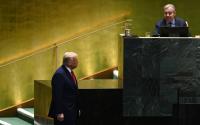17 January 2007Martin Rees
The threat of all-out nuclear war hung over us for 40 years. But this catastrophic threat could be merely in temporary abeyance. We are confronted by proliferation of nuclear weapons, in North Korea and Iran for instance. Terrorists might acquire a nuclear weapon.
The nuclear threat will always be with us. But it is based on basic science that dates from the 1930s. What are the potential impacts of 21st-century science? There are grounds for being a techno-optimist. The technologies that fuel economic growth today - IT, miniaturisation and biotech - are environmentally and socially benign. They're sparing of energy, and of raw materials. They boost the quality of life in the developing as well as the developed world. That's good news.
Some threats are environmental: rising populations, especially in the megacities of the developing world, increasing energy consumption, and so forth. Human actions are transforming, even ravaging, the entire biosphere, perhaps irreversibly, through global warming and loss of biodiversity. We've entered the new geological era, the anthropocene. We don't fully understand the consequences of our many-faceted assault on the interwoven fabric of atmosphere, water, land and life.
Humankind's collective impacts on the biosphere, climate and oceans are unprecedented. These environmentally driven threats - "threats without enemies" - should loom as large in the political perspective as did the East/West political divide during the Cold War era.
Unless they rise higher on international agendas, remedial action may come too late to prevent "runaway" climatic or environmental devastation. The UK Government has taken a welcome lead.
Twenty first-century technology could offer immense opportunities, for the developing and the developed world. But it will present new threats more diverse and more intractable than nuclear weapons did. To confront these threats successfully - and to avoid foreclosing humanity's long-term potential - scientists need to channel their efforts wisely and engage with the political process nationally and internationally.
Martin Rees is president of the Royal Society
http://comment.independent.co.uk/commentators/article2160058.ece






